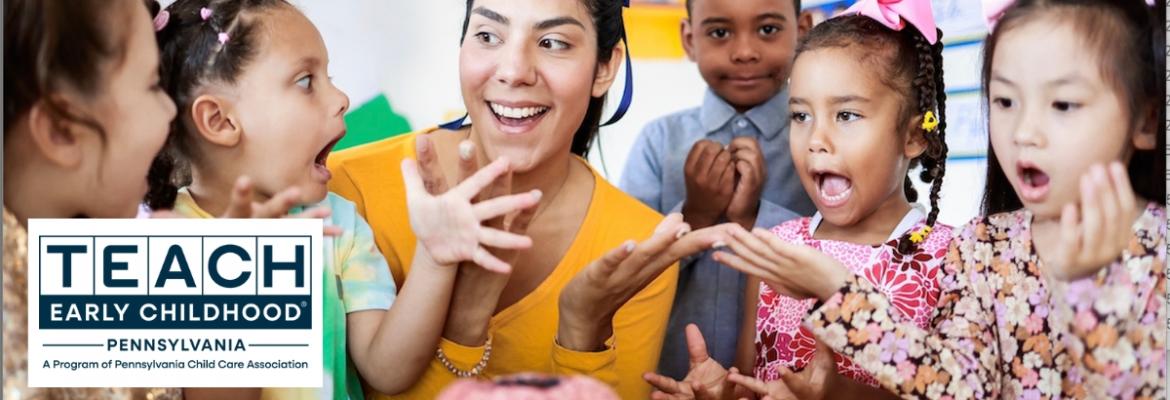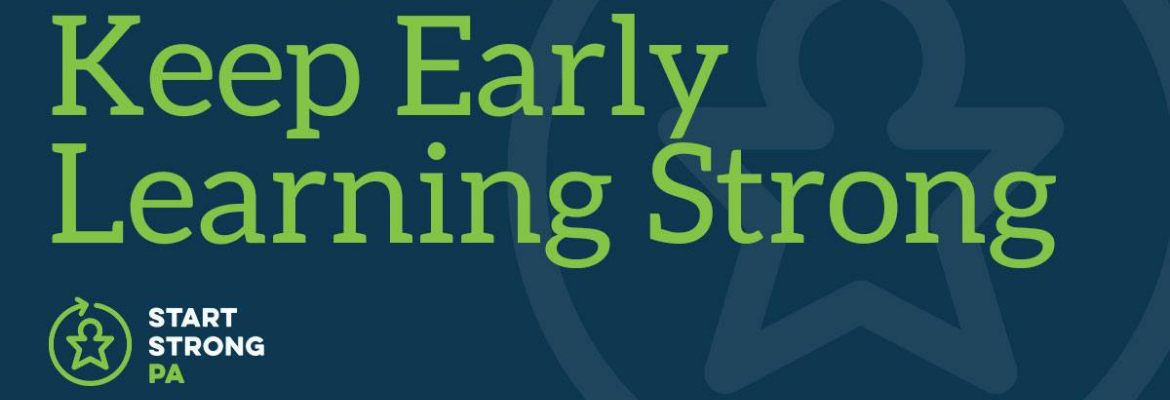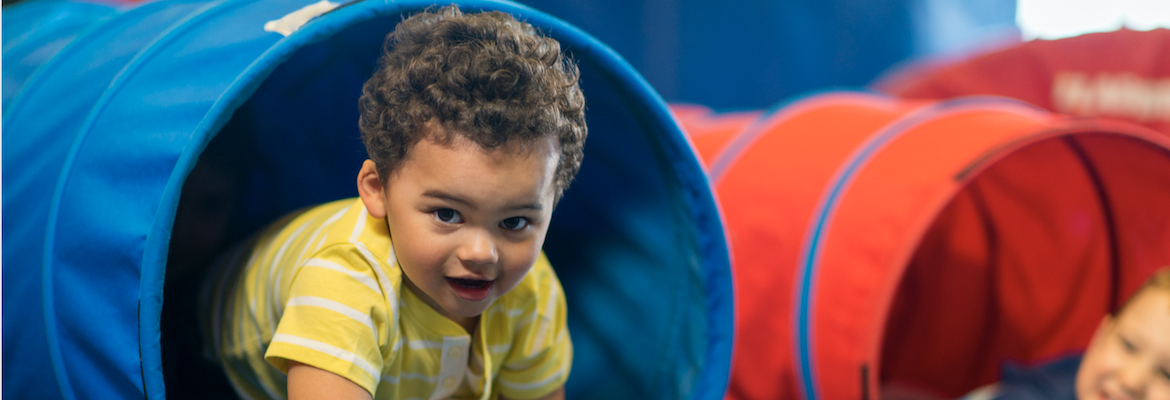| The 2023-24 Session ended November 14, 2024. All legislation not voted expired at the end of the session. The 2025-2026 session began 1/7/2025. |
PN 2571 Referred to CHILDREN AND YOUTH, Nov. 6, 2025 | Rep. Melissa L. Shusterman | Directing the Joint State Government Commission to Study Private Equity in ChildcareA Resolution directing the Joint State Government Commission to study the impact of private equity in child care and make recommendations for limiting negative effects. |
Referred to HEALTH AND HUMAN SERVICES, Oct. 17, 2025 [Senate] | Sen. Maria Collett | Elijah’s Law: Anaphylaxis Recognition and Emergency Response Procedures in Day CaresWould require that all child day care employees are properly trained to recognize and respond to anaphylaxis; require that epinephrine auto-injectors, which are used in response to a severe allergic reaction, be made available for emergency use in these facilities by directing DHS; and require that a child day care facility notifies as soon as possible the parent(s) or guardian(s) of a child who suffers from an anaphylactic attack. |
Passed the Senate June 25, 2025.
Referred to the HOUSE. First consideration October 8, 2025. Laid on the table October 8, 2025 | Sen. Rosemary M. Brown | Summer Camp Eligibility CorrectionWould amend Title 55 Pa. Code, which provides for part-day school-age programs, to exempt children entering kindergarten for the purpose of attending summer camp, and other short-term programs. |
Re-committed to APPROPRIATIONS, July 14, 2025 [House] | Rep. Eric R. Nelson | Easing the Childcare Cliff
Proposes to amend the Human Services Code to move child care subsidy maximum income (300% FPI) from the 2023-2024 Fiscal Code. |
Final passage, July 9, 2025 (176-27). Referred to AGING AND YOUTH, July 23, 2025 {Senate} | Rep. Thomas L. Mehaffie, III and Rep. Jared G. Solomon | Keystone STARSWill require the Department of Human Services to update its Keystone STARS program guidance to provide a pathway for child care employees and providers to receive “credit” for years of experience. Will encourage child care providers to educate families about the Keystone STARS program by advertising their “STAR Status” on their front doors and website. |
Re-referred to HUMAN SERVICES, June 26, 2025 [House] | Rep. Carol Kazeem | Expanding Child Care Works to Help More Families
Would increase the maximum family income for subsidized child care by three percent.
SPONSORSHIP MEMORANDUM |
Referred to HEALTH AND HUMAN SERVICES, June 25, 2025 [Senate] | Rep. Jeanne McNeill | Investing in Pennsylvania’s Families by Strengthening the Child Care WorkforceWould utilize funding proposed by the Governor in the 2025-2026 budget to support the child care workforce through recruitment and retention bonuses for licensed child care providers participating in the Child Care Works program. On average, those bonuses would result in an additional $1,000 per teacher annually, providing a meaningful resource to help child care providers raise wages and stabilize this critical workforce. |
Re-committed to RULES, June 10, 2025 [House] | Rep. Liz Hanbidge | Correcting an Omission to Ensure Child and Dependent Care Tax Credits are Available to All Qualifying FamiliesLegislation that would create an alternate eligibility route for families who are not able to receive the federal child and dependent care tax credit because of their participation in a dependent care FSA. Money put into a dependent care FSA doesn’t count toward taxable income and provides another convenient option for paying childcare expenses that has benefited many families. Because our state credit is linked to the federal credit, these working parents are unable to receive the state credit. |
Referred to CHILDREN AND YOUTH, June 9, 2025 [House] | Rep. Jeanne McNeill | Investing in Pennsylvania’s Families by Strengthening the Child Care WorkforceThe legislation would utilize funding proposed by the Governor in the 2025-2026 budget to support the child care workforce through recruitment and retention bonuses for licensed child care providers participating in the Child Care Works program. On average, those bonuses would result in an additional $1,000 per teacher annually, providing a meaningful resource to help child care providers raise wages and stabilize this critical workforce. |
Passed in the HOUSE June 24, 2025. Referred to the SENATE HEALTH AND HUMAN SERVICES, June 25, 2025 | Rep. Kristin Marcell and Rep. Melissa Cerrato | Use of Epinephrine Auto-Injectors in Day Care Facilities
Legislation would ensure day care facilities can obtain prescriptions for and maintain a constant supply of epinephrine auto-injectors with available funding from the Pennsylvania Department of Health. While current Pennsylvania law requires facility employees and agents to receive training, this legislation will further strengthen the law to support training for administering proper weight-based doses of epinephrine as well as assisting day-care facilities with providing informational materials for parents and guardians to better recognize the signs and symptoms of allergic reactions, including anaphylaxis. |
Passed the HOUSE July 7, 2025. Referred to Senate EDUCATION July 14, 2025 | Rep. Liz Hanbidge | Protecting Access to Pre-K CountsLegislation would amend the Public School Code to clarify that IUs are eligible recipients of Pre-K Counts grants. By making this clarification, we will be ensuring that future students will continue to have access to Pre-K Counts programs operated by IUs, regardless of potential changes to the Federal Head Start program. |
Laid on the table, May 12, 2025 [House] | Rep. Napoleon J. Nelson | Updated Teacher Certification LevelsProposal to update Pennsylvania’s teacher certification levels as follows:Primary: Pre-kindergarten, kindergarten, grades 1 through 6, or ages 3 through 11.Secondary: Grades 6 through 12 or ages 11 through 21.
|
Referred to HEALTH AND HUMAN SERVICES, April 21, 2025 [Senate] | Sen. Marty Flynn | Requiring Child Day Care Providers to Install Safety Guards on DoorsLegislation would require child day care providers to install safety guards on doors. Door safety guards, installed on the hinge side of the door, are designed to prevent children from inserting their finger or hand into the hinge area in order to minimize the risk of fracture, laceration, or amputation. The installation of these safety devices can prevent traumatic injuries, as well as the expensive treatment associated with serious incidents. |
Referred to HUMAN SERVICES, April 3, 2025 [House] | Rep. Eric R. Nelson and Rep. Jose Giral | Easing the Childcare Cliff
Proposes to amend the Human Services Code to move child care subsidy maximum income (300% FPI) from the 2023-2024 Fiscal Code. |
SB 256
Re-referred
to
APPROPRIATIONS, April 2, 2025 | Sen. Wayne D. Fontana | Carbon Monoxide Detectors
Would require carbon monoxide detectors be placed in various structures, including in buildings were a vulnerable population lives or visits. |
HB 156
Referred to HEALTH AND HUMAN SERVICES, April 14, 2025 | Rep. Jeanne McNeill | Carbon Monoxide Alarms in Child Care Facilities (formerly HB 494)Would require child care facilities housed in buildings with carbon monoxide sources to be equipped with one or more carbon monoxide alarms, depending on the size of the building. |
Referred to
HUMAN
SERVICES, March 17, 2025 [House] | Rep. Liz Hanbidge and
Rep. MaryLouise Isaacson | Child Care Subsidies for Childcare WorkersProposing legislation that would allow child care workers, including direct support professionals in a child care setting, in Pennsylvania to be eligible for subsidized child care, regardless of income status. Child care workers would be able to apply for the Child Care Works program in Pennsylvania, thus making their own child care more affordable. |
Referred to FINANCE, May 16, 2025 [Senate] | Rep. Christina D. Sappey | Working Pennsylvanians Tax Credit
Proposal for the enactment of the Working Pennsylvanians Tax Credit, a 30% refundable state Earned Income Tax Credit (EITC) to help eligible working Pennsylvania households achieve their goals. |
HB 778
Referred to EDUCATION, March 3, 2025 [House] | Rep. Melissa L. Shusterman | Pre-K Teacher Salary Supplement Pilot
ProgramCreate a pilot program to provide salary supplements for Pre-K Counts and public school teachers to ensure they are being paid in parity to other teachers in the school who have a PK-4 certification. |
HB 779
Referred to EDUCATION, March 3, 2025 [House] | Rep. Melissa L. Shusterman | Head Start Teacher Salary Supplement Pilot
ProgramCreate a pilot program to provide salary supplements to all Head Start and public school teachers. The supplement would not be for a specific dollar amount; but would aim to alleviate the pay differentials between Pre-K and K-4 teachers who have the same qualifications. |
HB 780
Referred to EDUCATION, March 3, 2025 [House] | Rep. Melissa L. Shusterman | Early Childhood Educator Tuition Assistance Program and the Early Childhood Educator Tuition Assistance FundCreate an Early Childhood Educator Tuition Assistance Program to provide grants to individuals seeking an associate degree or certification in early childhood education who agree to work in the field in Pennsylvania for at least two years. |
HB 781
Referred to EDUCATION, March 3, 2025 [House] | Rep. Melissa L. Shusterman | Infant and Toddler Care Professionals Salary SupplementCreate a pilot program to provide salary supplements for child care professionals working in private child care centers. With the ultimate goal of addressing salary parity across all sectors of child care, the intention of this pilot program is to increase overall workers’ pay, not decrease the employers’ payroll costs. |
HB 524
Referred to CHILDREN AND YOUTH, Feb. 5, 2025 [House] | Rep. Jose Giral | Video Surveillance in Child Care CentersWould require child care centers to install and maintain video camera surveillance systems. |
Referred to CHILDREN AND YOUTH, Jan. 28, 2025 [House] | Rep. Cerrato | Increasing the Availability of Emergency ChildcareThe resolution aims to identify what could be done to alleviate Pennsylvania parents’ child care burden by directing the Joint State Government Commission to study emergency child care and make recommendations about how to expand availability and access in the Commonwealth. |
Referred to CHILDREN AND YOUTH, Jan. 27, 2025 [House] | Rep. G. Roni Green | Child Care Centers: Environmental Health AssessmentWould require that new day care centers, should they wish to operate in a building that previously housed a high-hazard business, perform environmental health assessments to ensure that the building is free of harmful chemicals and safe for children. |
HB 74
Referred to HUMAN SERVICES, Jan. 14, 2025 [House] | Rep. Brian Smith | Voluntary Autism ScreeningWould require the Pennsylvania Department of Human Services to provide Pennsylvania’s licensed child care providers with an autism screening tool and information on resources. The providers may present the information to a parent and assist with the use of the tool upon request. Neither the child care provider nor the parent will be required to use the screening tool. |
HB 46
Referred to EDUCATION, Jan. 10, 2025 [House] | Rep. Tarik Khan and Rep. Sean Dougherty, Rep. Jeanne McNeill, Rep. Gina H. Curry, Rep. Napoleon J. Nelson | Increasing Access to PreK for PA KidsWould require schools to provide Pre-K for all eligible children. |
SPONSORSHIP MEMORANDUM
The proposed legislation by House and Senate members seeking so-sponsors. |
1/9/2026 | Sen. Michele Brooks | Improving Oversight and Reporting of Publicly Funded Child CareLegislation would require greater transparency, oversight, and reporting of taxpayer-funded child care programs in Pennsylvania. |
1/6/2026 | Rep. Jill Cooper and Rep. Kate Klunk | Protect Child Care Funding ActProvide for an audit of the Commonwealth’s taxpayer-funded child care programs and of the Department of Human Services’ oversight of those programs. |
12/15/2025 | Senator Maria Collett and Sen. Nikil Saval | Universal Child CareThe legislation would advance access to Universal Child Care in the Commonwealth of Pennsylvania. |
6/18/2025 | Rep. Joe Hogan and Rep. Shelby Labs | Developing the Early Educator PipelineThe legislation would create a pilot program that will create a pipeline to develop the next generation of early education teachers. By utilizing our local career and technical high schools and dual enrollment opportunities at our community colleges, students can graduate high school debt free and be qualified to work the day after they graduate.
Scholarships will be awarded to high school students that are dual-enrolled in a qualified early childhood education program. When they graduate, they will have earned an Associate’s degree and the required certifications at no direct cost to the student. However, as a condition of the scholarship, the students will agree to teach for a specified period of time at a qualified early education facility. |
5/5/2025 | Sen. Lindsey M. Williams and Sen. Judith L. Schwank | Investing in Pennsylvania’s Families by Strengthening the Child Care WorkforceThe legislation would utilize funding proposed by the Governor in the 2025-2026 budget to support the child care workforce through recruitment and retention bonuses for licensed child care providers participating in the Child Care Works program. On average, those bonuses would result in an additional $1,000 per teacher annually, providing a meaningful resource to help child care providers raise wages and stabilize this critical workforce. |
1067
Referred to HEALTH AND HUMAN SERVICES, Oct. 17, 2025 [Senate] | Sen. Maria Collett | Elijah’s Law: Anaphylaxis Recognition and Emergency Response Procedures in Day CaresWould require that all child day care employees are properly trained to recognize and respond to anaphylaxis; require that epinephrine auto-injectors, which are used in response to a severe allergic reaction, be made available for emergency use in these facilities by directing DHS; and require that a child day care facility notifies as soon as possible the parent(s) or guardian(s) of a child who suffers from an anaphylactic attack. |
|
1/29/2025 | Sen. Patrick J. Stefano and Sen. Lynda Schlegel Culver | Child-Care Workforce CommissionWould reintroduce legislation to establish the Child-Care Workforce Commission. The Child-Care Workforce Commission will serve as a dedicated body to study, evaluate, and recommend policies to address the needs of the child-care workforce in Pennsylvania. The commission will include experts, stakeholders, and representatives from relevant state agencies, child-care providers, and early childhood education institutions. It will conduct a comprehensive review of the current state of the child-care workforce and develop strategies to improve recruitment, retention, and professional development opportunities. |
1/17/2025 |
Sen. Michele Brooks
| Requiring Counties to Share Child Care and Dependent Care Facility Locations and Emergency Plans with MunicipalitiesReintroduces Senate Bill 636 of the 2023-2024 legislative session to require counties to share the location of their child care facilities and other dependent care facilities with the local municipality in which they are located, along with each facility’s emergency plans, and any subsequent updates. |
12/19/2025 | Rep. Aaron Bernstine | Child Care Tax Deduction
Would allow taxpayers to deduct up to $10,000 in child care expenses on their annual personal income tax return. |
12/03/2025 | Rep. Jose Giral | Food Allergy Protocol in Child Care Centers
Would require the Department of Human Services, in conjunction with the Department of Health, to develop guidelines for managing a child with a life-threatening food allergy. These guidelines would ensure all personnel working in child care centers are aware of the best practices for responding to life threatening allergic reactions, have access to a child’s self-injectable epinephrine, and include reasonable accommodations to limit children’s exposure to food allergens. |






